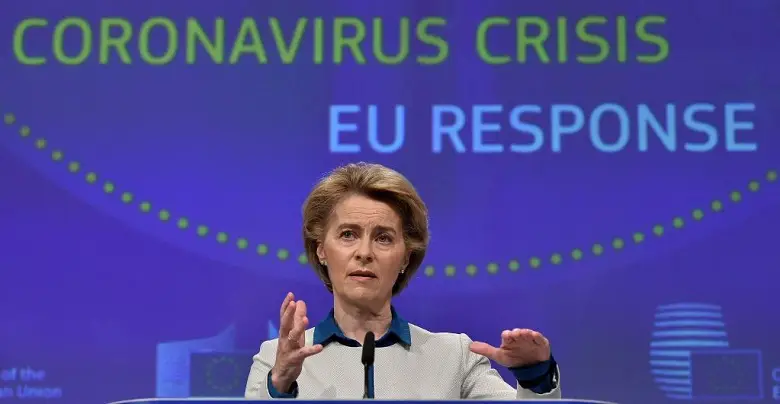EU Commission’s Huge Recovery Fund for the Bloc’s Corona-Battered Economies

On Wednesday, May 27, 2020, the president of European Commission Ursula von der Leyen unveiled a blueprint for the next financial budget and an attached COVID-19 recovery fund of €750-billion to cushion the massive economic harm done to European nations by the corona lockdowns.
The main features of the plan are:
- A €1.1 trillion budget for all the 27 EU countries for the period 2021–2027. A total of €1.85 trillion to reboot economies.
- A linked recovery fund worth €750 billion—€500 billion as free grants and the rest €250 as repayable loans to member nations.
- EU plans to dole out the money from September 2020 and upgrade stimulus spending for 2 years from 2021.
- The funds will be directed to member states and companies that are guarantees for the European Investment Bank.
- Some money will be given to member states as recovery- and reform-based loans, while other funds will be awarded as free grants to regular programs such as farm subsidies and development aid.
- The bond maturity period is up to 30 years and interest would be covered from the 2021–2027 budget and capital repayment by 2058.
- The two most corona-affected countries Italy and Spain will receive €173 billion and €140 billion, respectively, through a combination of loans and grants.
- Grants will be financed through substantial borrowing by the EU Commission against its budget.
However, the question of debt mutualization has put Austria, Denmark, Sweden, and the Netherlands against this plan primarily because it involves the Commission borrowing money for this fund on the international markets and using the credits of all the 27 EU countries to guarantee that debt.
However, the plan could probably serve as an opportunity for negotiations in which the four smaller northern European countries will fight their corner and may get the fund amount dragged down to €500 billion. However, the proposed amount is high figure and puts the stake a little bit more in Southern Europe’s favor.
Der Leyen said the pandemic-induced crisis has huge consequences and spillover effects across all countries and no one country possesses the resources or the infrastructure to fix any of that. An economically weakened part of Europe tends to weaken a strong economy in another part. This is about working together to counter a threat that is way bigger than any of them, she further added.



